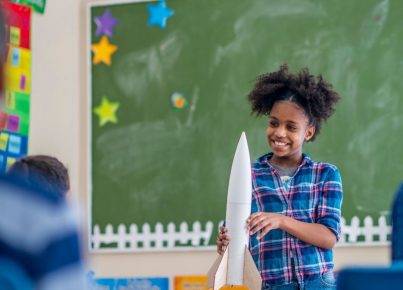Introduction:
Teaching expertise is a critical factor in shaping the educational landscape. Over the years, several studies have highlighted the importance of effective teaching and learning practices in enhancing student performance. In this article, we will explore a case study that demonstrates how teaching expertise can impact student outcomes and improve overall educational processes.
Case Study Background:
The case study revolves around a high school situated in a suburban neighborhood experiencing low academic performance for several years. The school’s curriculum focused primarily on theoretical knowledge with limited emphasis on practical applications or interactive learning experiences. The teaching staff at the school consisted of individuals with varying levels of experience; however, collaboration and professional development opportunities were scarce.
Implementation of Teaching Expertise Initiatives:
To address these challenges, the school’s administration sought to improve its teaching expertise by implementing the following initiatives:
1. Comprehensive Professional Development: The school organized comprehensive professional development workshops for its teaching staff. These workshops encompassed various pedagogical approaches, classroom management techniques, and incorporation of technology to facilitate personalized learning.
2. Collaborative Planning: The school encouraged its teachers to work together as they planned their lessons and assessments. This collaboration promoted open communication, sharing of best practices, and consistency across all classrooms.
3. Active Learning Strategies: Teachers were encouraged to adopt active learning strategies tailored to their students’ diverse needs. This involved using inquiry-based instruction, project-based learning, and experiential education approaches.
4. Regular Feedback and Reflection: Teachers participated in regular self-assessment sessions alongside peer evaluations. This routine helped identify areas of improvement while also enabling teachers to support one another in refining their practices.
5. Strengthening Parent-Teacher Collaboration: The school fostered stronger relationships between teachers and parents through regular communication channels and events like parent-teacher conferences, thereby creating an effective support system for student success.
Case Study Outcomes:
After implementing these initiatives, the school experienced significant improvements in its students’ academic performance. Some of the notable outcomes include:
1. Increased Student Engagement: Active learning strategies led to heightened student engagement, leading to stronger participation, collaboration, and understanding of the subject matter.
2. Improved Test Scores: The school witnessed a marked improvement in standardized test scores, indicating better mastery of the subjects taught.
3. Enhanced Teacher Satisfaction: Teachers reported higher levels of job satisfaction and increased confidence in their teaching abilities due to continuous professional development.
4. Strengthened School Culture: The initiatives fostered a more collaborative and supportive school environment, ultimately enhancing the overall educational experience for both students and educators.
Conclusion:
The case study described in this article successfully illustrates the transformative power of teaching expertise on student outcomes and educational processes. By emphasizing professional development, collaboration, active learning strategies, and continuous feedback, schools can effectively elevate their teaching standards and subsequently improve their students’ academic performance. Educational leaders should consider evaluating their current practices and adopting relevant initiatives that promote teaching expertise as a vital catalyst for driving educational success.





